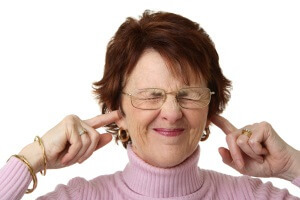
Smoking cessation calendar is a very convenient thing. This is a great tool to inspire people who want to quit bad habits. Generally speaking, quitting smoking is difficult, but it is possible.
For people suffering from nicotine addiction, a special calendar has been developed that lists all the positive changes in the body after quitting smoking. In addition, the diary contains not only physical aspects, but also emotional aspects.
The first week after quitting smoking
If you quit smoking, you will find changes every day. Moreover, their pronunciation is so high that one will notice them immediately.
First day
On the first day of smoking cessation, the concentration of carbon monoxide previously contained in human blood gradually began to decrease. Therefore, the transport capacity of red blood cells is significantly improved. After that, more oxygen enters the cells of various tissues throughout the body.
On the first day of quitting smoking, my mood improved significantly. This person is happy with this decision. He is confident and proud of being able to cope with difficult tasks. He is fully confident that this decision is final. At this point, the person actually does not have any desire for cigarettes, or does not feel it at all. In addition, on the first day, it is enough to distract yourself and carry out daily worries. But at the same time, there may be slight dizziness and weakness. Sometimes there is anxiety and poor appetite. Some people find it difficult to fall asleep due to sleep problems.
The next day
On the second day, the mucus synthesis in the lungs gradually began to decline. The function of ciliated epithelium in the lungs is much better. The first symptom appears, indicating nicotine starvation. But at the same time, intestinal mucosal cells began to be replaced by new cells.
As for the emotional state, euphoria will last for several days, but some people will become nervous and irritable. If you perform self-hypnosis, the craving for smoking will gradually decrease. A person can be very active sometimes, then become slow and sleepy.
As for physical performance, appetite is still poor, but some people may have an appetite for bright and obvious foods. A former smoker will cough and gradually get worse. Sometimes shortness of breath. With abdominal pain, the urge to urinate becomes more frequent. Feels dry skin.
The third day
On the 3rd day, the recovery process of ciliated epithelium begins. Repair will also affect the mucus layer of the bronchi. In the pancreas, more alkaline components are secreted, and the amount of mucus in the stomach is significantly reduced. The circulation of the heart and brain is improved. Vascular tension is restored. But at the same time, on the third day, the patient became nervous. "Nicotine withdrawal syndrome" is now fully manifested. By the way, your appetite has risen sharply and you keep wanting some sweets.
Fourth day

On the fourth day of quitting smoking, the blood level to the brain was almost completely restored and reached physiological standards.
The stomach and pancreas continue to repair themselves. The same goes for the lungs.
How the mood changes after 4 days: Aggressiveness gradually decreases. By the way, neuroticism can be stopped by various drugs.
The patient may be euphoric or depressed. Some people suffer from high blood pressure, tinnitus, constipation, cough, and dizziness. The fingers and toes are a little swollen.
The fifth day
On the 5th day, the superficial minor wound on the tongue began to heal. Without nicotine addiction, the tone of blood vessels returned to normal. Recovery occurs in different areas of the bronchi and lungs, but the intestinal discomfort has not passed. The food became fresh again, but there was a lump in the throat and breathing was still difficult. Quitting smoking on the fifth day is considered the most difficult day because the euphoria has passed and the health status has not improved. On other days, the risk of failure is high.
Sixth day
On day 6, mucus production in the lower lung area increases. Now, the cilia on the bronchi can take an active role. The secretory capacity of the pancreas and lungs is almost completely restored.
On the sixth day of quitting smoking, dyskinesia-type diseases may appear in the duodenum and gallbladder. On this day, all white blood cells have grown without being affected by nicotine.
Withdrawal syndrome manifested again: irritability, tearing, insomnia. I want cigarettes, it is difficult to hold them, but it is possible.
Nutritional disorders may increase. Appetite decreased after eating fatty foods, and even nausea. In addition, sweating, hand tremor, thirst, bitter mouth or increased throat lumps. Clean the body, cough with black mucus.
Seventh day
On the seventh day of quitting smoking, the physiological phase of nicotine addiction is almost over. Now, the human body has restored its own functions and can function normally without supplementing nicotine. A full recovery will now begin. The blood vessels and lungs have the longest recovery time. As for the emotional state, on the seventh day of quitting smoking, a person feels empty. Smoking is no longer a physical need, but just a daily habit.
The first six months
First month

What happens in the first month after quitting bad habits? The further recovery of the entire organism is now at the cellular level.
Epithelial cells have been renewed, so the absorption and production process of all the substances that the new cells need further is stabilized. These processes have now played a role after people quit smoking and got rid of nicotine addiction.
But psychologically, this month is very difficult. Some people are satisfied with themselves and enjoy life, while others consider the opposite and consider the number of days not to smoke.
Second month
What happens in the second month after quitting smoking: These cells have gone through about 2-3 renewal cycles, so this time is the best for women: the yellowing and dryness of the skin disappears. But the vascular network is still preserved. This is due to the fact that blood vessel cells have not been renewed. The lungs also continue to recover, but these processes have not yet reached the acinar-these are the smallest structural elements of lung tissue. The smoking ritual has not completely expired, so I smoke from time to time.
Third month
In the third month, the blood vessel cells fully recovered. Before that, due to any factor, especially pressure, their tone may be disturbed. But in the third month after quitting smoking, blood vessel tension returned to normal. By the way, the third month is considered crucial, because around this time, the physical craving for cigarettes disappeared, but some people still want to try again as before. At this point, the headache and dizziness have completely disappeared. This person slept well.
Fourth month

What happens in the fourth month? The skin cells are completely renewed, so the skin tone is now back to normal, the itching, dryness and flaking disappear.
The functions of the pancreas, stomach and liver of the former smoker have returned to normal, so the food is well absorbed. The intestines are the same.
Appetite stabilized, because the stress after quitting smoking disappeared, people no longer desire to eat sweets constantly.
Fifth month
In the fifth month after quitting smoking, the most difficult thing is the liver. It is not until the end of this month that certain cells in the organ begin to recover. After that, healthy cells can take on certain functions of the dead neighbor. The lungs continue to recover. Compared with when you just quit smoking, there is no or less sputum. The urge to smoke occurs only occasionally, but this situation will continue until 10 months after quitting smoking.
Sixth month
Six months ago, a man smoked his last cigarette. For this reason, the blood in the body is completely renewed, and all blood cells are not exposed to the effects of nicotine. Now they can fully transport oxygen.
The liver continues to regenerate after quitting smoking.
This will continue for another six months. At this stage, the acini of the lungs also begin to recover. Six months after quitting smoking, a person's breathing will be much easier. The weight has returned to normal. Appetite also returned to normal.
The year when you gave up bad habits

What happened in the seventh month? Smell to improve. Now, one begins to feel a better aroma. The palatability of food has also been significantly improved.
In the 8th month of quitting smoking, the former smoker no longer releases mucus when coughing, and the cough itself hardly appears. Now the lungs can deal with the problem on their own. If a person has already suffered from chronic obstructive pulmonary disease, his condition will be significantly improved by the eighth month of quitting smoking. The disease is in remission, and if the person stops smoking, it will continue for the rest of the time.
In the ninth month of quitting smoking, cigarettes no longer cause such a strong desire to smoke. However, it is important to learn to regain control of yourself, because in many cases, a person will automatically start smoking and think about something.
In the tenth month of quitting smoking, some people smoked in real dreams, but in real life, they easily do not smoke. In the dream, smoking is very real and all feelings are vivid, so awakening will be painful. Therefore, many people smoke in the morning. By the way, if a person likes to sing, it is much easier to control the vocal cords during this period.
In the 11th month of quitting smoking, a person can easily cope with jogging, brisk walking, strength training and other sports. But the load should increase gradually. The risk of smoking again is about 20-25%.
What happened a year after giving up the bad habit: The body almost recovered. The risk of stroke now does not exceed 30%. The probability of a heart attack is reduced by half. The possibility of tumor disease and liver pathology is reduced by 90%.
Conclusion
If you want to quit smoking, then a cessation diary is the best solution. This will help motivation, because it does not always get rid of bad habits quickly and easily.
But if you read about the positive changes that are taking place in the human body every day, you can help maintain this trend. In addition, the diary will also show the person's path.























